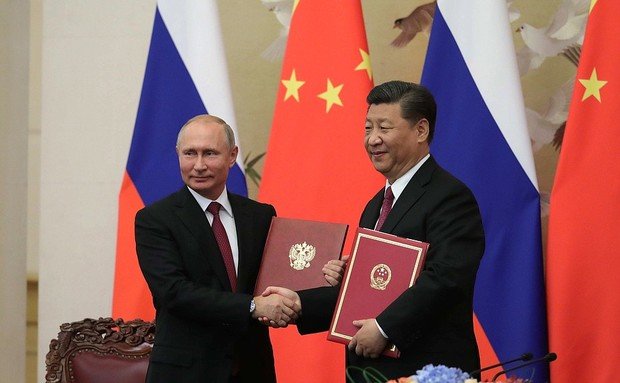''The job of Beijing and Moscow is to keep things quiet and peaceful''
Russians are growing wary of Chinese investments
While top Russian and Chinese officials are celebrating a dramatic thaw in the two countries' relations, the situation on the ground is rather complicated, as many Russians regard increased Chinese investments as annexation attempts.
A recent increase in Chinese projects has stoked resentment and tension, especially in Siberia and the Russian Far East, says South China Morning Post. Last week, a Russian court halted the construction of a water bottling plant on the shores of Lake Baikal. It was hailed as a victory for environmentalists, as Baikal is the planet's largest freshwater lake and a UNESCO World Heritage Site. The project is developed by Russian firm AquaSib owned by a Chinese company from Daqing, a city in China's Heilongjiang province. AquaSib planned to export 80% of the bottled water to countries like China and South Korea.
The construction of the plant started in January but caused a fierce public outcry in Russia. Over one million people signed an online petition against the project. According to analysts, the backlash was fuelled by suspicions and hostility many Russians have against the growing Chinese investment in the region.
''The Russian public opinion and the majority of mass media [are] opposing the Chinese projects,'' commented Yury Tavrovsky, a professor emeritus at the Peoples' Friendship University of Russia. He believes that Russian-Chinese business interaction in Siberia has already created a real problem for Moscow.

China's investments in Russia have increased nearly ninefold in the past ten years. The figure reached $13,8 billion in 2017 with two-thirds of that amount targeting Russia's natural resources including mining, forestry, fishery and agriculture sectors. Many locals regard Chinese investment as land grabs. An online petition accusing Beijing of seeking to transform the area around Lake Baikal into China's province was spread after Chinese investors started buying hotels on the shores of the lake. Later, the expansion of logging business sparked public fears that the Chinese are destroying the ancient forests of Russia.
At the same time, official relations between China and Russia could not be better. Both countries have recently faced deteriorating relations with the West, especially with the United States. Last year, China's army took part in Russia's war games. Joint investment funds and numerous projects have been launched to strengthen the two nations' economic ties, but on the ground, the activities are feeding resentment and tension. Residents of Siberia and the Far East have historically been very sensitive to the Chinese invasion. Besides, there is a huge population imbalance, as only 8,3 million live in the Russian Far East, while three bordering Chinese provinces have a total of 90 million residents.
''As long as China is developing so fast and as long as the Russian economy is so much weaker – and Russia has so few people across its many time zones – there are going to be tensions and suspicions towards China that neither government is going to be able to control,'' considers Robert Kaplan, a foreign policy analyst at Eurasia Group consultancy. The job of Beijing and Moscow is to keep things quiet and peaceful or their strategic partnership can be undermined, he warns.